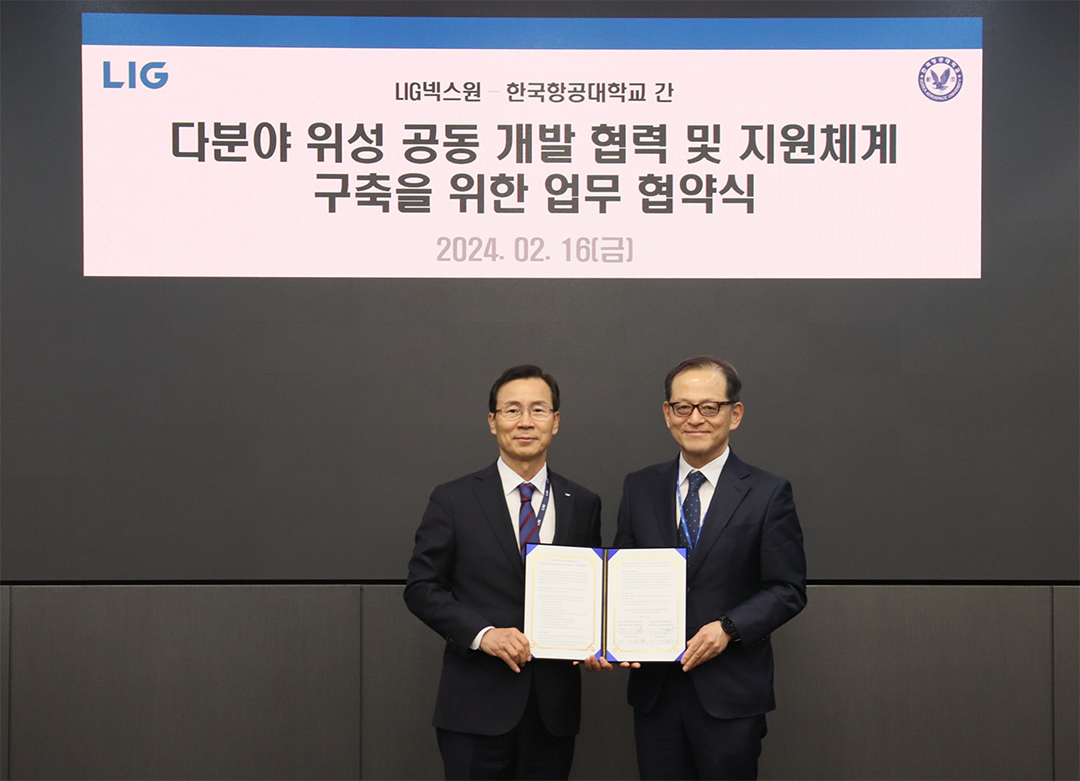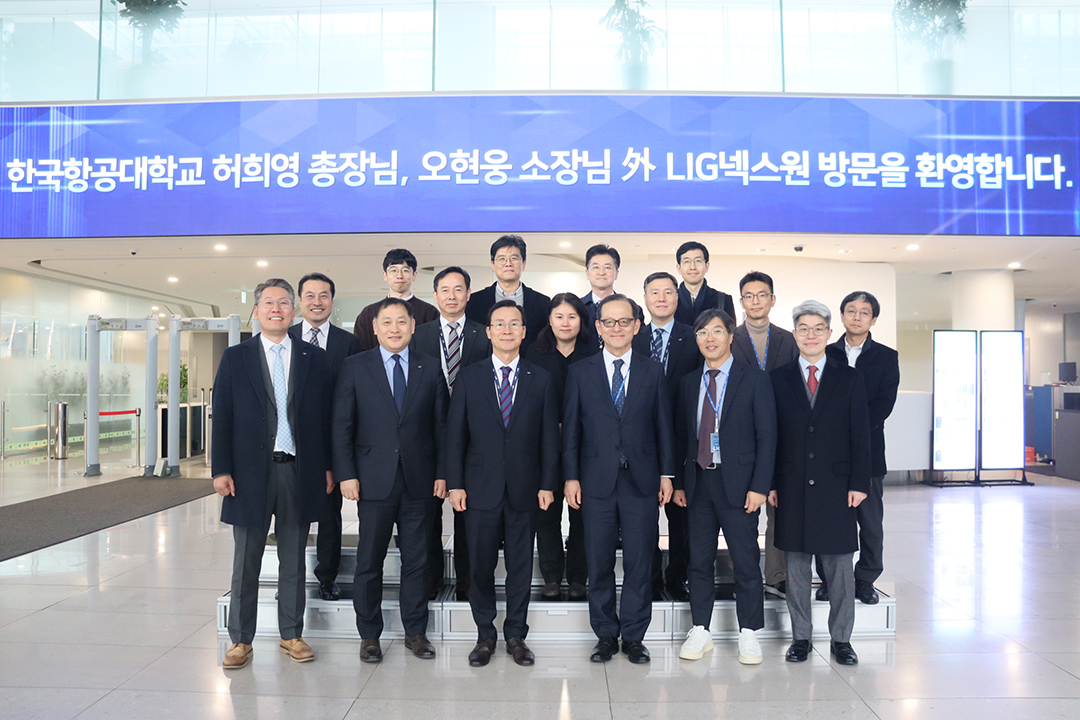Korea Aerospace University and LIG Nex1 Join Forces for Multipurpose Satellite Project
- 2024-02-21

Korea Aerospace University and LIG Nex1 have inked a significant Memorandum of Understanding (MOU) through a business agreement between Korea Aerospace University's Spa
ce Systems Technology Institute and LIG Nex1's Institute for Satellite Systems. This partnership aims to collaboratively develop multipurpose satellites and cultivate outstanding spac
e professionals. The signing ceremony, attended by officials from both organizations, including Heo Hui-yeong, President of Korea Aerospace University and Shin Ik-hyun, CEO
of LIG Nex1, took place at Pangyo H at 10 a.m. on the 16th.
The agreement, named the "Peregrine Falcon-Geunduun Satellite Project," symbolizes the determination of both organizations to swiftly adapt to the evolving global space market
and proactively engage in space brand technology. Drawing inspiration from the peregrine falcon, a courageous and agile bird of prey, and the "Geunduun," cloud-
shaped transport that Sun Wukong (Monkey King) uses. These symbols represent Korea Aerospace University and LIG Nex1, respectively.
This collaborative project seeks to establish an exemplary industry-academia-government cooperation system. The goal is to jointly develop multipurpose satellites,
enhancing competitiveness in the rapidly evolving global space market, characterized by a virtuous cycle of technology development.

The Space Systems Technology Institute at Korea Aerospace University, inaugurated in May last year, comprises specialized research teams in five key areas: systems, payloads, mech
anics/materials, electricity/electronics, and AI/SW. Led by Professor Oh Hyeon-ung, who successfully managed the development of a civilian-led small Synthetic Aperture Radar
(SAR) satellite last year under The Future Challenge Technology R&D Project of the Agency for Defense Development, the Space Systems Technology Institute comprises research
teams consisting of faculty members with extensive experience in satellite system development. The institute is poised to generate tangible research outcomes to enhance the competiti
veness of LIG Nex1's satellite systems research center. Additionally, it aims to cultivate exceptional student researchers who actively contribute to the project.
"In the current era of growing corporate influence in new media, establishing novel and efficient collaborations with academia is crucial for fortifying essential technologies and nurtur
ing top-tier talent," stated Kim Jong-pil, Director of LIG Nex1 Satellite Systems Research Institute.
"Through this agreement, we anticipate a boost in competitiveness within both the domestic and global space markets." Professor Oh Hyeon-ung, director of Korea Aerospace
University's Space System Technology Institute, underscored, "At a juncture where the commercial and security value of space is receiving unprecedented emphasis in Korea, aligned
with the government's ambitious vision to become a global space economic powerhouse by 2045, it becomes imperative to fortify the capabilities of space industry companies.
We believe that university research institutes should establish a system geared towards contributing to the enhancement of companies' competitiveness through practical research
results." Professor Oh expressed determination, stating, "We are committed to making the Peregrine Falcon-Geunduun Satellite Project a groundbreaking example that
will reshape the landscape of industry-academia cooperation in Korea."

